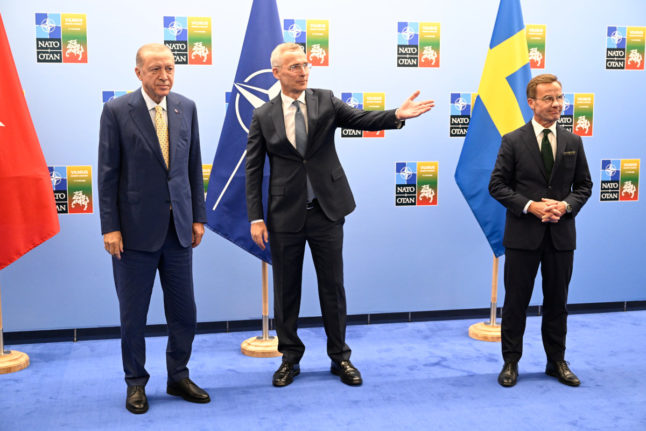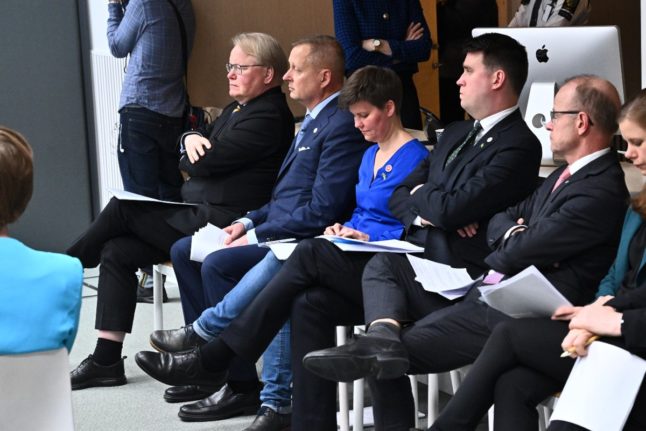The discussions in parliament’s foreign affairs committee represent an important moment for both European security and Turkey’s relations with the West.
Sweden and Finland dropped decades of military non-alignment and sought the nuclear protection afforded by the US-led organisation in response to Russia’s invasion of Ukraine last year.
Their bids won fast-track approval by all other Nato members except for Turkey and Hungary.
The two ultimately relented and accepted Finland into the bloc this year.
The step roughly doubled the length of Nato’s border with Russia and strengthened the security of three tiny Baltic nations that joined the bloc after the Soviet Union’s collapse.
But Turkey has vented fury at Sweden – a liberal Nordic nation that opened its doors to migrants in past decades – for refusing to crack down on Kurdish support groups that Ankara views as “terrorists”.
Hungary has been following Turkey’s lead in the 18-month saga.
Western allies worry that Hungarian Prime Minister Viktor Orban is using his close ties with Russian President Vladimir Putin to undermine Nato and sow divisions in Europe.
Turkish President Recep Tayyip Erdogan formally signed off on Sweden’s application at a raucous Nato summit in July.
But Nato hopes that Turkey would finally ratify the bid when parliament returned from summer recess receded as war returned to the Middle East.
‘Balancing act’
Israel has vowed to eradicate Hamas in retaliation for the militants’ attacks of October 7th in which 1,200 people – most of them civilians – died and around 240 were taken hostage.
The Hamas-run health ministry says the death toll from Israel’s Gaza offensive has now topped 11,500 and includes thousands of children.
Erdogan continues to voice occasional displeasure at Sweden for allowing Kurdish groups that Ankara has outlawed to march in Stockholm.
But he has focused most of his anger at Israel and the West for the scale of the civilian toll of the Gaza war.
Erdogan has called Israel a “terror state” that was being used as a “pawn” to project the interests of the United States in the Middle East.
He has also warned that a broader war between “the cross and the crescent” was breaking out between Israel’s mostly Christian Western allies and the Muslim world.
And he has defended Hamas – proscribed as a terrorist organisation by the United States and European Union – as the legally elected rulers of Gaza who were fighting for their land.
His impassioned speeches are replayed throughout the day on Turkish television and feed bubbling anger at Israel across the mostly Muslim but officially secular nation.
Erdogan led a Palestinian support rally in October that he claimed brought 1.5 million people out on the streets of Istanbul.
Yet Turkey has developed a reputation for pragmatism in its foreign relations during Erdogan’s two-decade rule.
Eurasia Group analyst Emre Peker predicted that “Erdogan’s outbursts will not derail (Turkey’s) foreign policy balancing act”.
Turkey is keen to win approval from the US Congress for a major F-16 fighter jet package that Washington has made conditional on Sweden’s Nato bid.
Erdogan’s decision to submit Sweden’s application for parliamentary approval “was intended to showcase Turkey’s key role in – and commitment to – the alliance,” Peker wrote in a report.
Erdogan controls parliament through an alliance with a far-right group.
The full chamber is expected to vote through the application shortly after its approval by the foreign affairs committee this month.
Article by AFP’s Dmitry Zaks



 Please whitelist us to continue reading.
Please whitelist us to continue reading.
Member comments